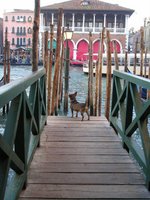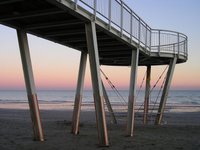
A "National Consumer and Financial Literacy Framework" has been developed for the Australian Ministerial Council on Education, Employment, Training and Youth Affairs. They define
Consumer and financial literacy as "the application of knowledge, understandings, skills and values in consumer and financial contexts and the related decisions that impact on self, others, the community and the environment."
This short document includes indicators for learning and a short list of 11 critical success factors. They relate the framework to four
dimensions: Knowledge and understanding; Competence; Enterprise and Responsibility (see quote below). I thought this was interesting and gave food for thought as regards information literacy:
knowledge and
competence are usually addressed in IL frameworks, but
Enterprise not, and
Responsibility perhaps more implicitly than explicitly.
"The dimension of:
· Knowledge and understanding is about the nature and forms of money, how it is used and the consequences of consumer decisions
· Competence is the application of consumer and financial knowledge and skills in a range of changing contexts
· Enterprise is the opportunity to use initiative, build financial capabilities and manage risktaking when making consumer and financial decisions
· Responsibility is appropriate consumer and financial decisions that display care for self, others, the community and the environment. "
Ministerial Council on Education, Employment Training and Youth Affairs (2005).
National consumer and financial literacy framework. Carlton South, Victoria: MCEETYA.
http://www.mceetya.edu.au/pdf/financial_literacy_framework.pdfPhoto by S. Webber: Dog at the S. Sofia traghehtto stop, Venice, Dec. 2005.
 "Les 6èmes Rencontres FORMIST se dérouleront le jeudi 15 juin à l’enssib, et seront suivies le vendredi 16 par une demie journée d’ateliers. Thème de ces Rencontres: «Exploitation et usages de l’information». Ce thème, large devrait être abordé sous les angles méthodologiques, juridiques, techniques, cognitifs, pédagogiques… Plus d’infos dans les semaines à venir, sur le site Formist (http://formist.enssib.fr ) et Blog Formist Information (http://blogformist.enssib.fr)"
"Les 6èmes Rencontres FORMIST se dérouleront le jeudi 15 juin à l’enssib, et seront suivies le vendredi 16 par une demie journée d’ateliers. Thème de ces Rencontres: «Exploitation et usages de l’information». Ce thème, large devrait être abordé sous les angles méthodologiques, juridiques, techniques, cognitifs, pédagogiques… Plus d’infos dans les semaines à venir, sur le site Formist (http://formist.enssib.fr ) et Blog Formist Information (http://blogformist.enssib.fr)"















